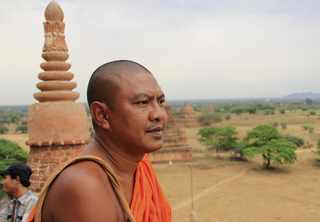Marxism and Buddhism might not seem to have much in common. The former is a materialist socioeconomic theory conceived by a 19th-century bearded guy from Trier in Germany, while the latter is a religion originating from orations delivered under a fig tree by a gaunt, peaceful, intimidating character in what is India today. Historically and geographically, they are as far apart as it gets, but the core of their philosophical analysis of the human condition is astoundingly close. It is so close, in fact, that Buddhist metaphysics can complement Marxist socioeconomic philosophy. As the anthropologist Claude Lévi-Strauss wrote in 1955: ‘Marxism and Buddhism are doing the same thing, but at different levels.'
At least since Tenzin Gyatso, His Holiness the 14th Dalai Lama of Tibet, commented on his Marxist inclination in 1993, it is evident that Buddhism and Marxism have something in common:
Of all the modern economic theories, the economic system of Marxism is founded on moral principles, while capitalism is concerned only with gain and profitability … The failure of the regime in the former Soviet Union was, for me, not the failure of Marxism but the failure of totalitarianism. For this reason, I still think of myself as half-Marxist, half-Buddhist.
And Marx himself knew something of Buddhism. In a letter to a friend, written in 1866, he described his own meditation practice:
I have become myself a sort of walking stick, running up and down the whole day, and keeping my mind in that state of nothingness which Buddhism considers the climax of human bliss.
So do Marxism and Buddhism really complement each other? How?






